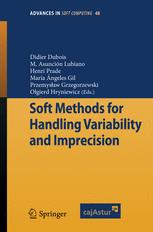

Most ebook files are in PDF format, so you can easily read them using various software such as Foxit Reader or directly on the Google Chrome browser.
Some ebook files are released by publishers in other formats such as .awz, .mobi, .epub, .fb2, etc. You may need to install specific software to read these formats on mobile/PC, such as Calibre.
Please read the tutorial at this link: https://ebookbell.com/faq
We offer FREE conversion to the popular formats you request; however, this may take some time. Therefore, right after payment, please email us, and we will try to provide the service as quickly as possible.
For some exceptional file formats or broken links (if any), please refrain from opening any disputes. Instead, email us first, and we will try to assist within a maximum of 6 hours.
EbookBell Team

4.0
16 reviewsProbability theory has been the only well-founded theory of uncertainty for a long time. It was viewed either as a powerful tool for modelling random phenomena, or as a rational approach to the notion of degree of belief. During the last thirty years, in areas centered around decision theory, artificial intelligence and information processing, numerous approaches extending or orthogonal to the existing theory of probability and mathematical statistics have come to the front. The common feature of those attempts is to allow for softer or wider frameworks for taking into account the incompleteness or imprecision of information. Many of these approaches come down to blending interval or fuzzy interval analysis with probabilistic methods.
This book gathers contributions to the 4th International Conference on Soft methods in Probability and Statistics. Its aim is to present recent results illustrating such new trends that enlarge the statistical and uncertainty modeling traditions, towards the handling of incomplete or subjective information. It covers a broad scope ranging from philosophical and mathematical underpinnings of new uncertainty theories, with a stress on their impact in the area of statistics and data analysis, to numerical methods and applications to environmental risk analysis and mechanical engineering. A unique feature of this collection is to establish a dialogue between fuzzy random variables and imprecise probability theories.